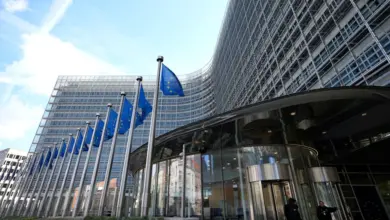
Car prices have soared in Egypt over the past years, prompting a group of frustrated would-be buyers to start a Facebook campaign calling for a consumer boycott in the hope of forcing prices back down.
Those behind the "Let it Rust" campaign point to Egypt's foreign currency crisis and the greed of car dealers as among the key problems, and they are banking on public pressure to bring about change.
The Egyptian car market has seen an overall surge of 30 precent in retail prices in the past two years.
Brands normally considered relatively cheap, such as Hyundai, Kia and Chevrolet, have become suddenly unaffordable for many. For example, the Hyundai Verna jumped from LE80,000 in 2015 to LE119, 000 in 2016; the Kia Picanto was LE85,000 in 2014, but now sells for LE145,000; and the Chevrolet Avio has jumped from LE90,000 to LE125,000.
Mortada al-Shazly, 31, the founder of "Let it Rust" told Egypt Independent that prices have rocketed over the last three years due to the loss of the Egyptian pound relative to the dollar, combined with car dealers seeking to increase their margins by 1,000 percent.
"For example, the car agents sell the car at LE90,000, but the dealer sells it to the customers at LE140,000, with a profit margin of LE50,000 compared to the previous profit of LE5,000," he said.
"Addded to that, some car agents have exploited the situation and deliberately stored the cars until the price of the dollar increased, then they sold them at a higher price"
Shazly says he first noticed the problem when he tried to purchase a car last year and found that the prices were unreasonably high, apparently manipulated by dealers in relation to the currency crisis.
"It all started when I went last year to purchase a car with my friend, but we were shocked by the high prices of the cash payment system, with a huge profit margin. When we asked for the normal prices, the dealer told us to wait for six to seven months," she said.
"We have complained several times to the Consumer Protection Agency with no fruitful response," he said.
Shazly says the market lacks governmental intervention to control prices and curb the greed of the agents and dealers.
The boycott campaign was launched via Facebook in November 2015, grabbing the attention of thousands of fans and the support of several other groups campaigning against consumer inflation.
Mohamed Mostafa is among the frustrated would-be customers who lent his support to "Let it Rust". He had planned to buy a new car for his family, with the aim of making their various gruelling journeys more comfortable. Having seen the prices of new cars, he has been forced to consider buying a second-hand model.
"However, I'm 100 percent certain that I'll find the prices badly affected by the increase in prices of brand new cars," he said.
"The campaign is good, but it won't make any different unless there is a clear governmental strategy to control prices. Prices will continue to rise, because people don't seem to be taking the matter seriously, and so the sales will continue."
Nour al-Din Darwish, Vice-president of the cars division at the Cairo Chamber of Commerce, attributed the recent price surge to the foreign currency crisis, with dollars increasingly scarce and expensive relative to the Egyptian pound.
Darwish says that car importers have been hard hit by restrictions on the amount of dollars that can be withdrawn from banks, according to rules imposed by the Central Bank of Egypt (CBE). This has forced them to buy their dollars on the black market, often at prices as high as LE11 per dollar.
"The CBE cut the value of the national currency by 14 percent in March, which raised the prices of all the vehicles by 30 percent," Dawrish said.
Echoing with the campaign, Darwish said that the greed of some traders had indeed exacerbated the crisis. Given that the demand for cars is greater than the supply, the increase in prices doesn't harm business, he said.
Darwish urged car owners to postpone any decision on renewing their cars to allow those without a car a better chance of buying something at a reasonable price.
“If the rate of purchases continues to rise, we will see an historic increase in car prices in the coming period,” Darwish said.




